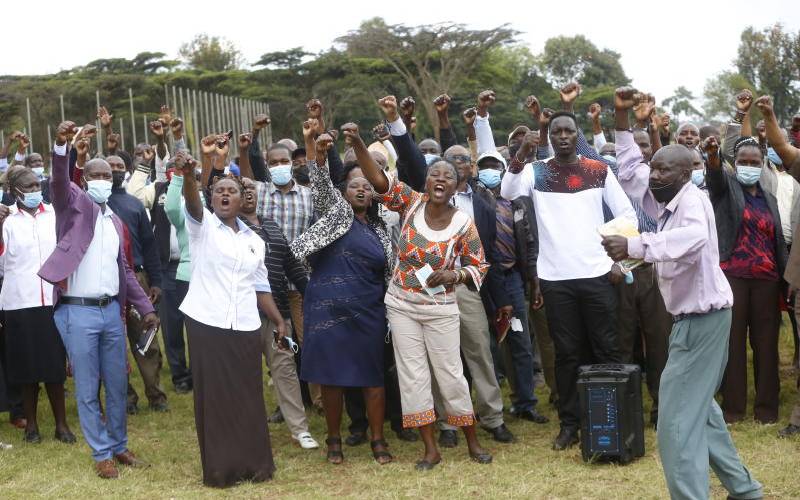×
The Standard e-Paper
Join Thousands Daily

Egerton university staff protesting at the University on November 4, 2021, on what they termed as sustained as systematic industrial injustices and employer cruelty. [Kipsang Joseph, Standard]
The government has proposed retrenchment as one of the measures it might take to manage a huge wage bill in institutions of higher learning that are choking under billions of debts.